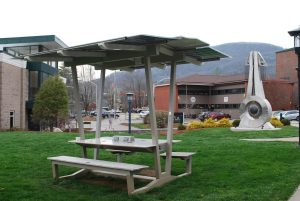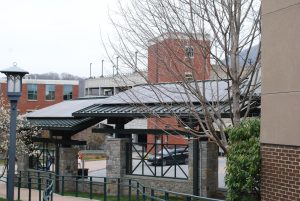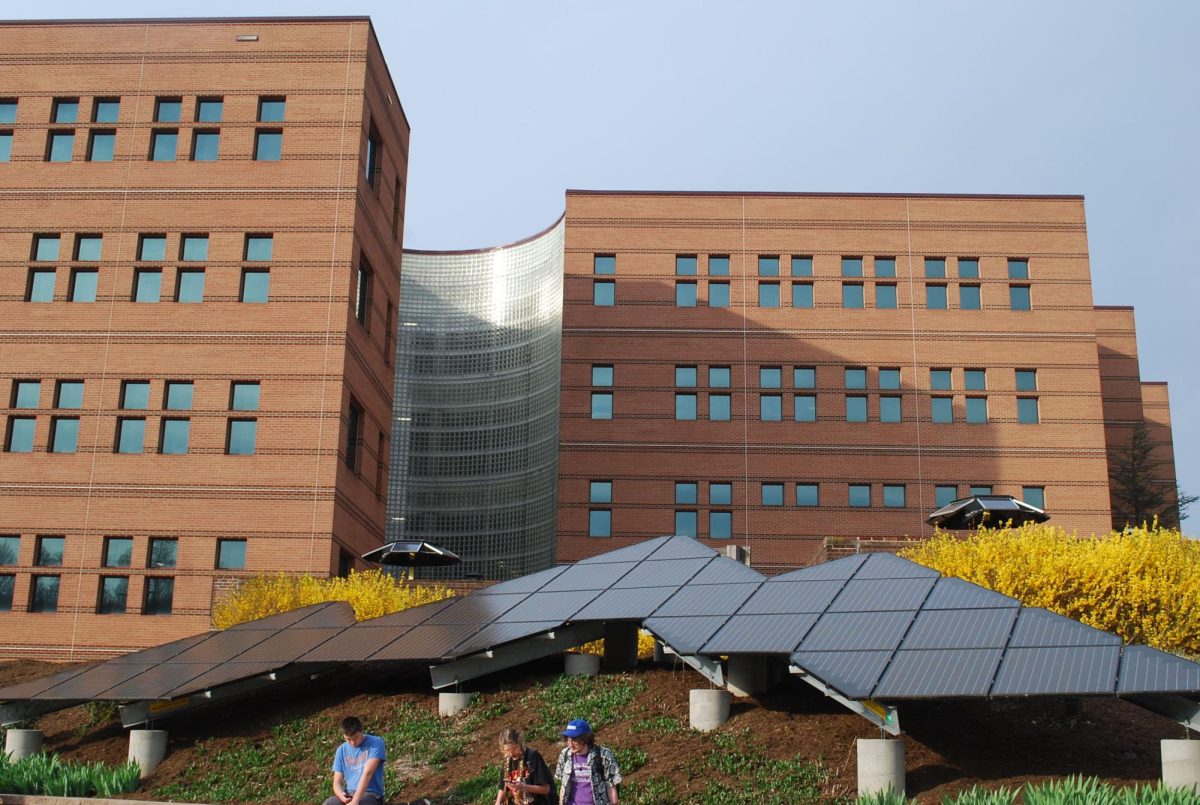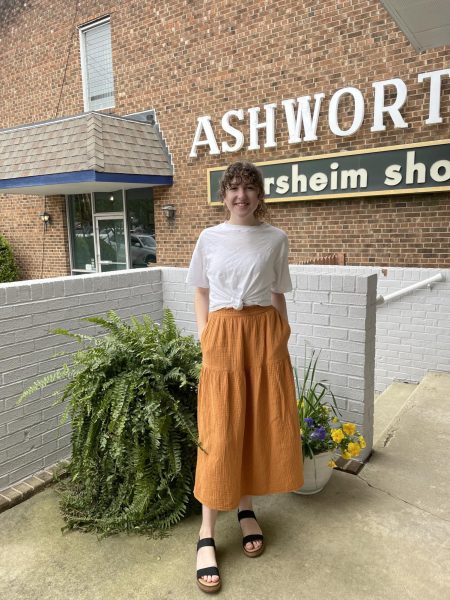App State’s commitment to sustainability is seen in many initiatives around campus; one of the first structures that comes to mind is the Broyhill Wind Turbine on Howard’s Knob.
This renewable energy installation was a part of a broader effort by a leading App State organization dedicated to helping reduce the university’s environmental impact.
The Appalachian State University Renewable Energy Initiative, established in 2005, is a student-led and student-funded organization celebrating its 20th anniversary this year.
Hannah Armstrong, a senior biology major and chair for the initiative said her time leading as chair has been enjoyable. In her time as chair, it marked the first time in nearly two decades that both the chair and director of operations positions had been held by women at the same time.
“I joined REI and have stuck with it because I feel like it is truly just such a special and unique group of people who think so positively about our future,” Armstrong said.
ASUREI has been spearheaded by students committed to advancing renewable energy technologies on campus. It is made up of a board of directors, three subcommittees, and general voting members who decide on which projects to fund every semester.
The initiative has funded and implemented multiple projects around campus that have helped minimize App State’s energy usage. Each project is managed by the data management subcommittee, which checks that projects are operating effectively.

Junior sustainable technology major RyLee Wadman, who is a voting member, shared ASUREI’s most recent project: creating a passive solar greenhouse above the Sustainable Development Civic Garden by the Living Learning Center.
“It’s going to be entirely sun-powered, basically, and be able to grow plants throughout the year and keep a comfortable temperature for the plants,” Wadman said.
Another project ASUREI worked on was creating a sustainable cooking show. The initiative teamed up with the Physics and Astronomy Department to convert a physics lab into a cooking lab.
Armstrong said the show was made with App TV and Carla Ramsdell, a practitioner-in-residence, to try to teach people that it’s possible to cook with sustainability in mind and to show people how they can do so.
The process for implementing a project is long and requires collaboration among students and companies.
Sophomore building sciences major Ransom Cope is the project relations and outreach chair for the initiative. He said ASUREI runs all their own projects from ideation, engineering, and design, all the way through to maintenance and project installation.
To implement a project it must be voted on; once a project is given the green light, most of the smaller campus projects are built and constructed through ASUREI’s own facilities. For bigger operations, they have to put out a bid to local installers and companies, and keep up with these companies throughout the process.
App State’s mountainous location can create unique challenges when it com

es to renewable energy.
Apprecia Lassiter, a senior building sciences major and ASUREI project management chair, said North Carolina’s Mountain Ridge Protection Act, which requires buildings and structures to be shorter than the ridgeline, makes it harder to build wind turbines in the mountains.
Solar panels, another renewable energy approach, also face hurdles in the region.
“Because we are in the mountains, we only get so many hours of sunlight, which means that we really need to make sure that its placement is most practical,” Lassiter said. “So we need to make sure that the location’s right, that there’s nothing in the way, because already in the winter time, the production goes down by about a third.”
Despite these challenges, ASUREI strives to promote sustainability and student engagement on campus. Wadman said although the organization is mostly made up of sustainable development and construction management majors, it is open to all students.
They said students can come to the organization with project ideas, to learn more about sustainable technologies, or just to have something nice to add to their resumes.
If students are interested in learning more about the initiative, general meetings are held on Fridays in Appalachian Hall, room 085, from 2-3 p.m. ASUREI can be followed on Instagram at appstate_rei.



MuChao • Jan 19, 2025 at 1:36 pm
REI shows *student* commitment to sustainability, not university commitment. The university uses sustainability as a buzzword for advertising and not much else. The real work is done (and paid for!) by students.
Example: For only ~4-5% of the annual financial *losses* incurred by the Athletics program, AppState could offset 100% of university electricity purchases with renewable electrons. For slightly more (~14% of annual Athletic losses), they could offset 100% of heating with purchased renewables.
In other words, for less than 20% of the ANNUAL financial *losses* incurred by Athletics, the university could accomplish nearly 70% carbon neutrality on campus. Is purchasing offsets the best option? No. Is it better than nothing? Yes. Is it easily affordable given the >$20million in annual losses from Athletics? You bet!
But tell me more about how the university is “committed” to sustainability…